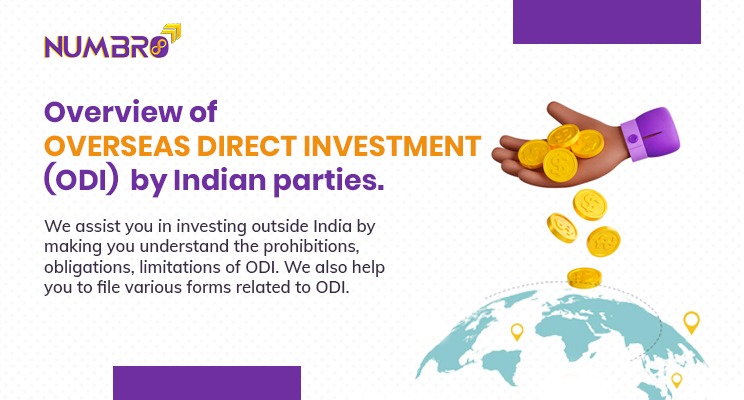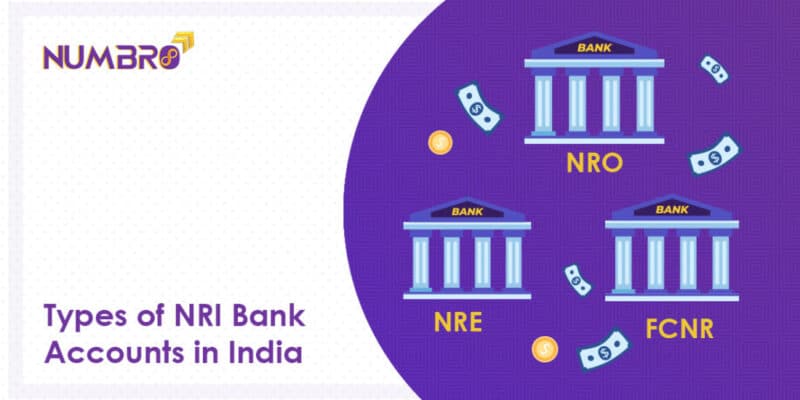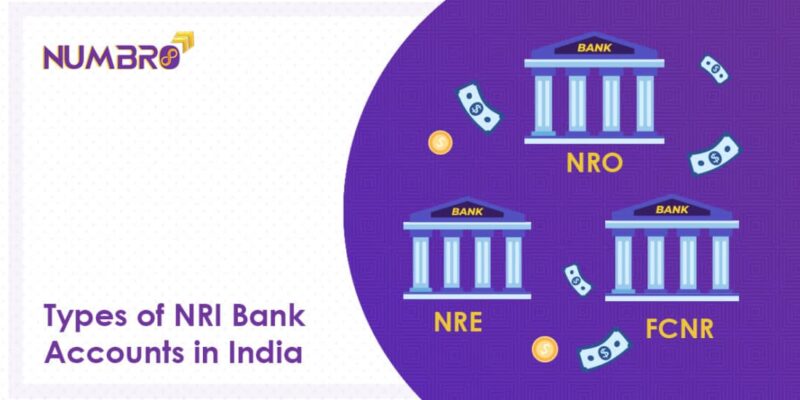Overseas Direct Investment
- Overseas investments (or financial commitments) in Joint Ventures (JV) and Wholly Owned Subsidiaries (WOS) have been identified by Indian entrepreneurs as important avenues for promoting global business.
- Joint Ventures are viewed as a vehicle for economic and commercial cooperation between India and other countries. Other significant benefits of such overseas investments include the transfer of technology and skill, the sharing of R&D results, access to a larger global market.
- Guidelines for overseas investment have been notified by RBI from FEMA.
Prohibitions
- Indian Parties are prohibited from making investment (or financial commitment) in foreign entity engaged in real estate (meaning buying and selling of real estate or trading in Transferable Development Rights (TDRs) but does not include development of townships, construction of residential/commercial premises, roads or bridges) or banking business, without the prior approval of the Reserve Bank.
- An overseas entity, having direct or indirect equity participation by an Indian Party, shall not offer financial products linked to Indian Rupee (e.g. non-deliverable trades involving foreign currency, rupee exchange rates, stock indices linked to Indian market, etc.) without the specific approval of the Reserve Bank. Any incidence of such product facilitation would be treated as a contravention of the extant FEMA regulations and would consequently attract action under the relevant provisions of FEMA, 1999.
Indian party making direct investment outside India
- An Indian Party can make direct investment in a Joint Venture or Wholly Owned Subsidiary outside India. The conditions for making such investment are as under:
- The total financial commitment of the Indian Party in Joint Ventures / Wholly Owned Subsidiaries shall not exceed 100%, or as decided by the Reserve Bank from time to time, of the net worth of the Indian Party as on the date of the last audited balance sheet;
- The direct investment should be made in an overseas JV or WOS engaged in a bonafide business activity;
- The Indian Party should not be on the Reserve Bank’s Exporters caution list /list of defaulters to the banking system circulated by the Reserve Bank or under investigation by any investigation /enforcement agency or regulatory body;
- The Indian Party must have submitted its Annual Performance Report in respect of all its overseas investments in the format given in Part III of the Form ODI;
- The Indian Party must route all transactions relating to the investment in a Joint Venture/Wholly Owned Subsidiary through only one branch of an authorized dealer4 to be designated by it.
- the Indian Party must submit Part I of the Form ODI, duly completed, to the designated branch of an authorized dealer
Obligations of an Indian party making ODI
- An Indian Party which has made ODI in securities of the overseas JV/WOS shall –
- Receive the share certificates within 60 days from the date of making investments;
- Repatriate to India, all dues receivable from the foreign entity, like dividend, royalty, technical fees etc., within 60 days of its falling due, or such further period as the Reserve Bank may permit;
- Submit to the RBI, through an Authorised Dealer, on or before a specified date, an Annual Performance Report in respect of each overseas JV/WOS of the Indian Party based annual audited accounts of the preceding years;
- Have to submit an Annual Return on Foreign Assets and Liabilities in specified format by a specified time to the RBI.
Limits of ODI
- The ‘Total Financial Commitment’ by an Indian Party in its Joint Venture company (JV) /Wholly-owned subsidiary (WOS) outside India should not exceed 100% of net worth of the Indian Party. The ‘net worth’ should be as per the last audited balance sheet of the Indian Party
What comes under “Total financial commitment” by an Indian party
- For the purpose of determining ‘Total Financial Commitment’ within the said limit of net worth, the following should be considered –
- Remittance by market purchases, namely in freely convertible currencies; in case of Bhutan, investment made in freely convertible currencies or equivalent Indian Rupees, in case of Nepal, investment made only in Indian Rupees;
- Capitalization of export proceeds and other dues and entitlements;
- 100% of the value of guarantees issued by the Indian party to on or behalf of the overseas JV/WOS;
- Investment in agricultural operations through overseas offices or directly;
- External Commercial Borrowing in conformity with other parameters of the ECB guidelines;
- 50% of the value of performance guarantee issued by the Indian party to or on behalf of the overseas JV/WOS. In cases where invocation of the performance guarantees breach the ceiling for the financial exposure of 100% of the net worth of the Indian party, the Indian party shall seek the prior approval of the Reserve Bank before remitting funds from India, on account of such invocation.
- 100% of the value of the bank guarantee(s) issued by a resident bank on behalf of an overseas JV/WOS of the Indian party, which is backed by a counter guarantee / collateral by the Indian party.
Can the net worth of subsidiary/holding company of the Indian party be utilized for investing in a JV/WOS abroad?
- For the purpose of determining the net worth of an Indian party, the net worth of its holding company (at least 51% stake holding in the Indian Party) or its subsidiary company (at least 51% stake holding by the Indian party) may be taken into account to the extent not availed of by the holding company or the subsidiary independently and has furnished a letter of disclaimer in favour of the Indian Party.
Various filing requirements in ODI
- Following are the filing requirements in ODI:
- Form ODI Part I – Application for making overseas direct investments under the approval route.
- Form ODI Part II – Reporting of remittances to be submitted by the AD Category Bank to RBI.
- Form ODI Part III – Annual Performance Report (APR) – To be submitted, certified by Statutory Auditors of the Indian party, through the designated AD Category– I bank every year by June 30th as long, as the JV / WOS is in existence.
- Form ODI Part IV – To be submitted for reporting the closure/ disinvestment/ voluntary liquidation, winding up of the JV/WOS abroad.
- Annual Return on Foreign Liabilities and Assets – All the Indian Parties having ODI have to file the FLA return every year by July 15.
Indian Party making overseas investment in Financial Service Sector
- Indian Party rendering financial services, subject to the following conditions, may invest in overseas Financial Service Sector:
- has earned net profits in preceding 3 financial years from financial services activities.
- is registered with the regulatory authority in India to conduct financial services activities.
- approvals have been accorded from the regulatory authorities of both the countries, India and abroad, for venturing into such financial services sector.
- has complied with the prudential norms relating to capital adequacy, as set by the regulatory authority in India.
It’s to be noted, any additional investment by an existing JV / WOS or its step-down subsidiary in the financial services sector is also required to comply with the above conditions
Is ODI in Agricultural Operations permissible?
- However, the following should be ensured while making ODI in Agricultural Operations:
- A person resident in India, being a company incorporated in India or a partnership firm registered under the Indian Partnership Act, 1932, are permitted to undertake agricultural operations including purchase of land incidental to such activity either directly or through their overseas offices.
- The Indian Party is otherwise eligible to make the ODI and such investments is within the prescribed limits.
- For the purpose of acquisition of land, the same should be valued by certified valuers registered with the appropriate valuation authority in the host country.
Is an Indian Party permitted to extend loan/guarantee on behalf of its overseas JV/WOS?
- The Indian Party may extend loan or a guarantee to or on behalf of its JV/WOS abroad, subject to the following –
- the same should be within the permissible financial commitment limits.
- the Indian Party has made the investment by way of contribution to the equity capital of the Joint Venture.
Can Indian Parties invest in foreign entities other than by way of direct investments?
- Yes, a Listed Indian Company may invest up to 50% of their net worth, as per its last audited balance sheet, in overseas companies listed on a recognised stock exchange or in rated debt securities issued by such overseas companies.
Can an Indian Party create charge on its properties or financial assets in favour of overseas JV/WOS?
- The Indian Party may create a charge, by way of mortgage/ pledge/ hypothecation, on its movable/ immovable properties or financial assets (except shares of JV/WOS) or that of its Group companies in favour of the overseas JV/WOS, to avail financial/non-financial facility from an authorised dealer bank or a public financial institution in India or to an overseas lender, subject to the following –
- the Indian Party is required to obtain prior permission from the RBI;
- the lender is regulated and supervised as a bank;
- the total financial commitment of the Indian Party remains within the limit stipulated by the RBI for overseas investments in JV/WOS; and
- a ‘No Objection’ is submitted by the Indian party and its Group companies from their resident lenders
How are Compulsorily Convertible Preference Shares (CCPS) treated for the purpose of ODI?
- The CCPSs are treated at par with equity shares and the Indian Parties are allowed to make ODI in overseas JV/WOS by way of investments in CCPSs.
- However, apart from the CCPS, all other types of preference shares are to be treated as loan extended by the Indian party to its JV/WOS abroad and compliance to the provisions of FEMA Regulations needs to be adhered to.


